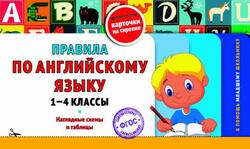Bon and Buddhism are by far the two most important religions of Tibet. The followers of Bon, known as Bonpos, claim that Zhang-zhung (both the country and its language) was the immediate source of the Bon religion that was subsequently transmitted to Tibet. Hence, the study of Zhang-zhung must be considered a prerequisite for tracing back the history of Bon religion, which for Bonpo scholars is a very crucial subject. At the same time this study might also be beneficial for other scholars working in the fields of Indian, Tibetan and Himalayan studies. There are various lines of reasoning that could demonstrate how the study of Zhang-zhung is connected with all three of these fields of study. Although not very well known, over many centuries important connections have been maintained between Indian religious leaders and the region of Zhang-zhung. Figuring very highly in this connection are certain geographic features of Upper Zhang-zhung, namely, the mountain called Kailash (or Ti-se) and Lake Manasarowar.

Zhang-zhung: the clan, the country, the language and the script.
More and more people are aware these days that the name Zhang-zhung belongs not only to a country of considerable size and significance in the history of the Tibetan Plateau, but also to the language that was spoken there and to a number of scripts that are sometimes used for writing that language. In this introduction we will begin by looking in some detail at the meaning of the language name, followed by a discussion of the internal geography of the country along with some words about the dialects of Zhang-zhung language. Then we will make a comparison of Zhang-zhung language vocabulary with both Sanskrit and Tibetan vocabulary in an attempt to come to conclusions about the nature of the historical relationships between these languages.
Although this is not widely known, the language name Zhang-zhung is itself a meaningful term in the Zhang-zhung language. It is not Tibetan. However, if one were to translate its two syllables from Zhang-zhung into Tibetan, the zhang would correspond to Tibetan lung-pa (“land” or “country”), while the zhung is Zhang-zhung for the Tibetan khyung (which may stand either for the mythical khyung bird or for the dan named Khyung). Hence, Zhang-zhung means “Land of Khyung”.
The Drang-don mun-sel sgron-ma (p. 540.3) says, “Zhang-zhung, the land of the Khyung-po” (zhang zhung gis [gi] yul khyung po'i lung pa). This quotation suggests that the zhung, Tibetan khyung, in the name Zhang-zhung ought to be understood as the clan Khyung, since members of the Khyung clan would be called Khyung-po. Since this is a very important point, I would like to bring forward more evidence and arguments for this interpretation.
Бесплатно скачать электронную книгу в удобном формате, смотреть и читать:
Скачать книгу Zhang-zhung-Tibetan-English Contextual Dictionary, Dagkar Namgyal Nyima, 2003 - fileskachat.com, быстрое и бесплатное скачивание.
Скачать djvu
Ниже можно купить эту книгу, если она есть в продаже, и похожие книги по лучшей цене со скидкой с доставкой по всей России.Купить книги
Скачать - djvu - Яндекс.Диск.
Дата публикации:
Теги: учебник по английскому языку :: английский язык :: Dagkar Namgyal Nyima
Смотрите также учебники, книги и учебные материалы:
Следующие учебники и книги:
 Иностранный язык для студентов бакалавриата, методические указания, Германович Т.В., 2020 — В методических указаниях представлены аутентичные тексты на английском языке и задания к ним по темам курса Иностранный язык . Задания … Книги по английскому языку
Иностранный язык для студентов бакалавриата, методические указания, Германович Т.В., 2020 — В методических указаниях представлены аутентичные тексты на английском языке и задания к ним по темам курса Иностранный язык . Задания … Книги по английскому языку Английский язык для магистрантов, Галаганова Л.Г., Логунов Т.А., 2017 — Учебное пособие разработано но дисциплине Иностранный язык в соответствии с ФГОС ВО и содержит обзор грамматического строя английского языка, а … Книги по английскому языку
Английский язык для магистрантов, Галаганова Л.Г., Логунов Т.А., 2017 — Учебное пособие разработано но дисциплине Иностранный язык в соответствии с ФГОС ВО и содержит обзор грамматического строя английского языка, а … Книги по английскому языку English Grammar, Prepositions, Совершенствование грамматических навыков, Пособие для педагогов, Денисова А.В., 2020 — Пособие содержит 10 упражнений тренировочных заданий с ответами для проверки навыков и умений по теме Предлоги , а также краткую … Книги по английскому языку
English Grammar, Prepositions, Совершенствование грамматических навыков, Пособие для педагогов, Денисова А.В., 2020 — Пособие содержит 10 упражнений тренировочных заданий с ответами для проверки навыков и умений по теме Предлоги , а также краткую … Книги по английскому языку Really useful english idioms, D Arey Adrian-Vallance, 2008 — Do you want to understand and use more idioms in English? With over 130 of the most common idioms used … Книги по английскому языку
Really useful english idioms, D Arey Adrian-Vallance, 2008 — Do you want to understand and use more idioms in English? With over 130 of the most common idioms used … Книги по английскому языку
Предыдущие статьи:
 The Firefly Five Language Visual Dictionary — The Firefly Five Language Visual Dictionary uses pictures to define words. With thousands of illustrations and thousands of specialist and … Книги по английскому языку
The Firefly Five Language Visual Dictionary — The Firefly Five Language Visual Dictionary uses pictures to define words. With thousands of illustrations and thousands of specialist and … Книги по английскому языку Учебник английского языка, Буренина Л.К., Консон С.Б., 1974 — Учебник составлен с целевой направленностью на обучение чтению, переводу и на развитие навыков устной речи. Содержит большое количество живых диалогов, … Книги по английскому языку
Учебник английского языка, Буренина Л.К., Консон С.Б., 1974 — Учебник составлен с целевой направленностью на обучение чтению, переводу и на развитие навыков устной речи. Содержит большое количество живых диалогов, … Книги по английскому языку Учебник английского языка, часть 2, Бонк Н.А., Лукьянова Н.А., Памухина Л.Г., 1973 — Данный учебник представляет собой вторую часть учебника английского языка для начинающей взрослой аудитории, составленного Н. А. Бонк, Г. А. Котий … Книги по английскому языку
Учебник английского языка, часть 2, Бонк Н.А., Лукьянова Н.А., Памухина Л.Г., 1973 — Данный учебник представляет собой вторую часть учебника английского языка для начинающей взрослой аудитории, составленного Н. А. Бонк, Г. А. Котий … Книги по английскому языку English for students majoring in history, Болотов Д.Е., Датчук Н.Ю., 2021 — Цель учебного пособия - развитие навыков интерпретации текстов по специальности студентами-магистрантами, изучающими английский язык как средство профессиональной коммуникации (история). Содержит … Книги по английскому языку
English for students majoring in history, Болотов Д.Е., Датчук Н.Ю., 2021 — Цель учебного пособия - развитие навыков интерпретации текстов по специальности студентами-магистрантами, изучающими английский язык как средство профессиональной коммуникации (история). Содержит … Книги по английскому языку




